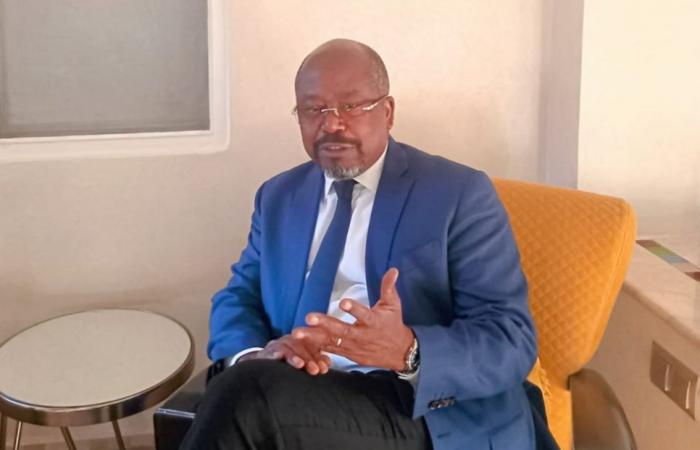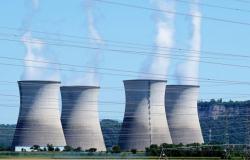In this interview, Alain-Claude Bilie-By-Nzeformer Prime Minister of Gabon (from January 9 to August 30, 2023) discusses the obstacles to economic growth in Central Africa, the key role of infrastructure and industrialization, as well as opportunities for collaboration with strategic partners such as Morocco. He also calls for the renewal of Gabonese leadership to strengthen regional integration and face the continent’s economic and security challenges.
Central Africa is going through a pivotal period marked by major economic and geopolitical challenges. The Central African Economic and Monetary Community (CEMAC), despite its initial ambitions, is struggling to achieve its development objectives.
In this interview granted exclusively to Challenge, Alain-Claude Bilie-By-Nze draws an uncompromising observation on the structural weaknesses of the region, in particular low connectivity and the absence of industrial diversification. However, it offers pragmatic solutions to revitalize the regional economy.
Read also | 3 questions to AMITH President Anas Al-Ansari
Gabon, a historic player in regional cooperation, aspires to regain its leadership role despite recent upheavals. Bilie-By-Nze insists on the need for his country to rely on the Economic Community of Central African States (ECCAS), of which Libreville hosts the headquarters, in order to boost a market of nearly 200 million consumers. This ambition is part of a broader desire to promote peace and security as pillars of harmonious and sustainable development.
Furthermore, the historical relations between Gabon and Morocco are taking on increasing strategic importance. The former Prime Minister highlights the benefits of strengthened cooperation in sectors such as agriculture, fisheries and infrastructure. While welcoming Moroccan investments in Gabon, he invites Gabonese companies to further explore the opportunities offered by the Kingdom. This collaboration illustrates, according to him, one of the models of intra-African partnerships to be multiplied to build an economically integrated and prosperous Africa.
Challenge. What is your current assessment of the economic situation in CEMAC? What do you think are the main challenges to stimulate economic growth in this region?
Alain-Claude Bilie-By-Nze. CEMAC constitutes a monetary area, as well as a free trade zone, which could have allowed its six member states to experience intense economic and commercial exchanges, beneficial to economic actors and populations.
Unfortunately, despite good intentions, translated by common standards among others, CEMAC is struggling to fulfill all its missions and achieve the expected development objectives. At present, growth in the zone, which is around 2%, slightly down compared to 2023, remains very fragile and well below the figures posted by its WAEMU counterpart, for example.
This weakness in CEMAC’s economic performance can be explained by several factors, two of which seem essential to me.
First, very weak integration, with a very low level of intra-community trade. This is mainly explained by the poor state of road, port, rail and airport infrastructure. There are in fact very few good quality communication channels allowing fluid exchanges between the different countries of this economic and monetary area.
The second factor slowing down CEMAC’s economic performance remains its underindustrialization and the lack of diversification of its economy. Based on the export of raw materials, the CEMAC economies allow very little trade, because none of its member states is in demand of the raw materials produced by the others, due to lack of a production industry. transformation and an adequate market.
Read also | Africa Atlantic gas pipeline: The Senegalese-Mauritanian deposit redefines energy issues
Economic diversification is a key issue for CEMAC countries. What policies or concrete initiatives would you recommend to reduce dependence on natural resources, particularly oil?
First and foremost, we must urgently improve infrastructure to strengthen connectivity and encourage real movement of goods.
-Next, it is necessary to effectively implement existing plans to encourage greater diversification, notably the local processing of raw materials, primarily wood and agricultural products.
Finally, agricultural production must be intensified to reduce dependence on imports.
How do you see the future of African economic integration? Do you think that regional blocs, like CEMAC, are effective springboards for achieving the objectives of the African Continental Free Trade Area (ZLECAF)?
Beyond CEMAC, we must raise the issue of integration with regional economic communities, in this case ECCAS, and address the same infrastructural and connectivity challenges. With its 11 member states, ECCAS represents a market of nearly 200 million consumers.
Gabon and Morocco maintain a historical and strategic relationship. How do you see the evolution of this relationship in the economic, educational and cultural fields?
Relations have strengthened in recent years, mainly thanks to Moroccan investments in the banking, telecoms and mining sectors.
It would be desirable to strengthen this cooperation in other areas such as agriculture and fishing, given the potential expertise and know-how available to the Kingdom of Morocco.
However, there is very little, if any, Gabonese investment in Morocco. There is an area to explore for our companies.
On a cultural level, many Gabonese students are welcomed in Morocco for their studies, which I am delighted about. They return to our country equipped with a solid academic culture and a knowledge of Moroccan values. It would be desirable to further strengthen this flow of exchanges: military medicine and health, international trade, customs trainees, the examples are numerous.
Read also | France is leaving its military bases all over Africa
As a former Prime Minister, what role do you think Gabon should play in strengthening regional cooperation within CEMAC and beyond?
Presidents Omar Bongo and Ali Bongo have supported Gabonese leadership, notably with the hosting of the ECCAS headquarters in Libreville and initiatives aimed at strengthening sub-regional integration.
My vision is that Gabon must regain this leadership on this essential issue of community integration. The projection of the market open to Gabonese economic players obviously goes beyond our 2 million inhabitants and is placed in the perspective of the 200 million consumers of the ECCAS.
This leadership also means contributing to promoting peace and security efforts, without which no harmonious economic and social development is possible.
What is your long-term vision for an economically integrated and politically united Africa? What priority political and economic levers should be activated to achieve this?
We need political stability, security, infrastructure development and a revitalization of the internal market to promote intra-African trade capable of supporting endogenous and inclusive growth.




